I'm having a problem loading mp4 video files on Safari being served from my nodejs server. The problem does not exist on Chrome.
To illustrate the problem, I have a simple html webpage which reads an mp4 file mov_bbb.mp4 served from w3schools. I then download the same file and serve it from my nodejs server.
vid1 (served from w3schools) loads fine on both Chrome and Safari.
vid2 (served from my nodejs server) load fine on Chrome but not on Safari.
Here's a screenshot of what I see in Chrome:
Here's a screenshot of what I see in Safari:
Here is my html:
<!DOCTYPE html>
<html>
<head>
<title>test</title>
</head>
<body>
<video id="vid1" controls preload="auto" src="https://www.w3schools.com/html/mov_bbb.mp4"></video>
<video id="vid2" controls preload="auto" src="http://localhost:8125/mov_bbb.mp4"></video>
</body>
</html>
Here is my nodejs server:
var http = require('http');
var fs = require('fs');
var path = require('path');
http.createServer(function (request, response) {
console.log('request starting...');
var filePath = '.' + request.url;
if (filePath == './')
filePath = './index.html';
var extname = path.extname(filePath);
var contentType = 'video/mp4';
fs.readFile(filePath, function(error, content) {
if (error) {
if(error.code == 'ENOENT'){
fs.readFile('./404.html', function(error, content) {
response.writeHead(200, { 'Content-Type': contentType });
response.end(content, 'utf-8');
});
}
else {
response.writeHead(500);
response.end('Sorry, check with the site admin for error: '+error.code+' ..\n');
response.end();
}
}
else {
response.writeHead(200, {
});
response.end(content, 'utf-8');
}
});
}).listen(8125);
console.log('Server running at http://127.0.0.1:8125/');
Any suggestions would be much appreciated.
Update:
Revised nodejs code. Still same issue on Safari though:
var http = require('http');
var fs = require('fs');
http.createServer(function (request, response) {
console.log('request starting...');
var filePath = '.' + request.url;
if (filePath == './') {
var contentType = 'text/html';
filePath = './index.html';
} else {
var contentType = 'video/mp4';
}
var rstream = fs.createReadStream(filePath);
rstream.on('error', function(error) {
response.writeHead(404);
response.end();
});
rstream.on('open', function () {
response.writeHead(200, {
'Content-Type': contentType,
});
});
rstream.pipe(response);
}).listen(8125);
console.log('Server running at http://127.0.0.1:8125/');
Also chrome inspector for http headers:


